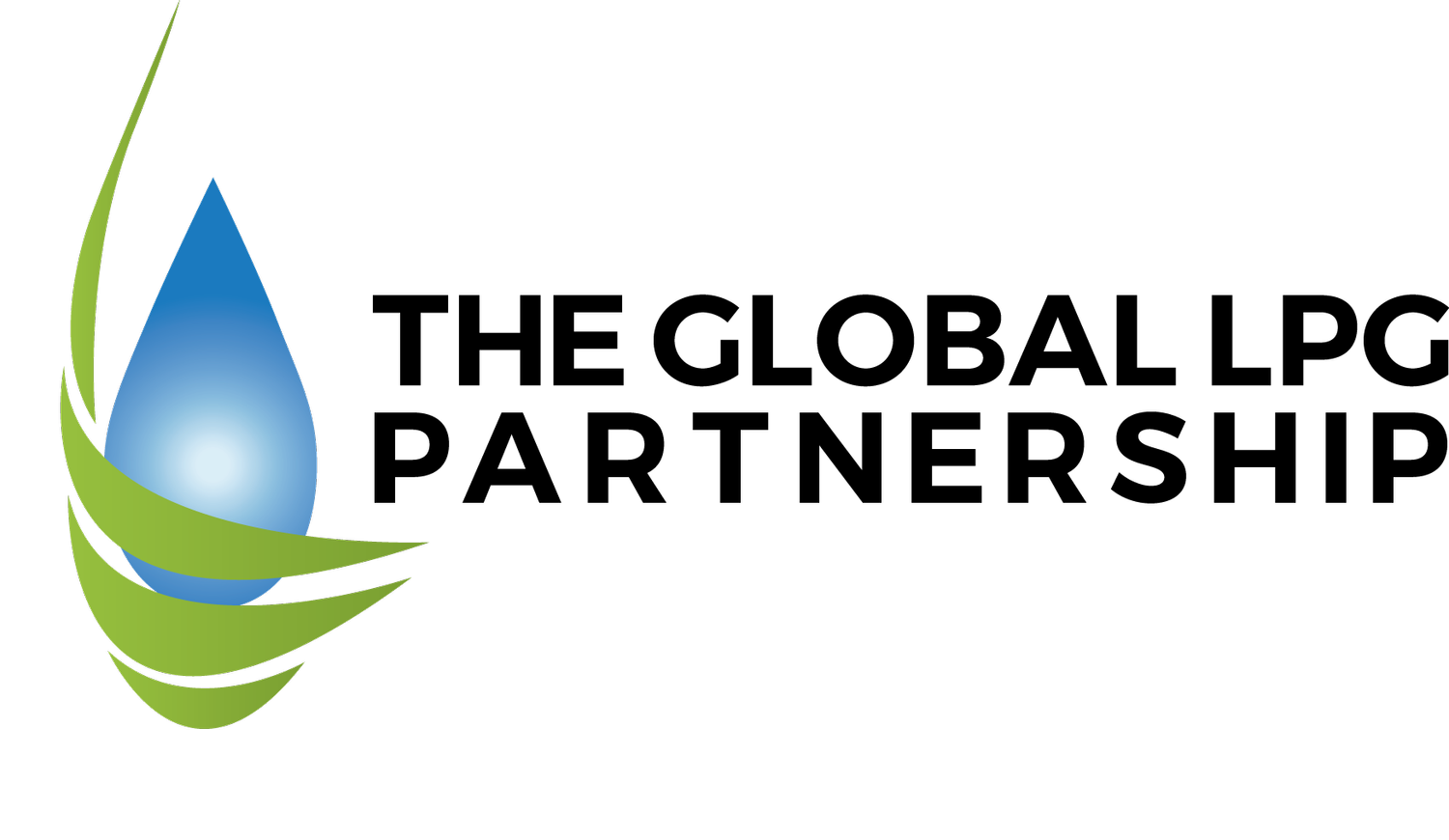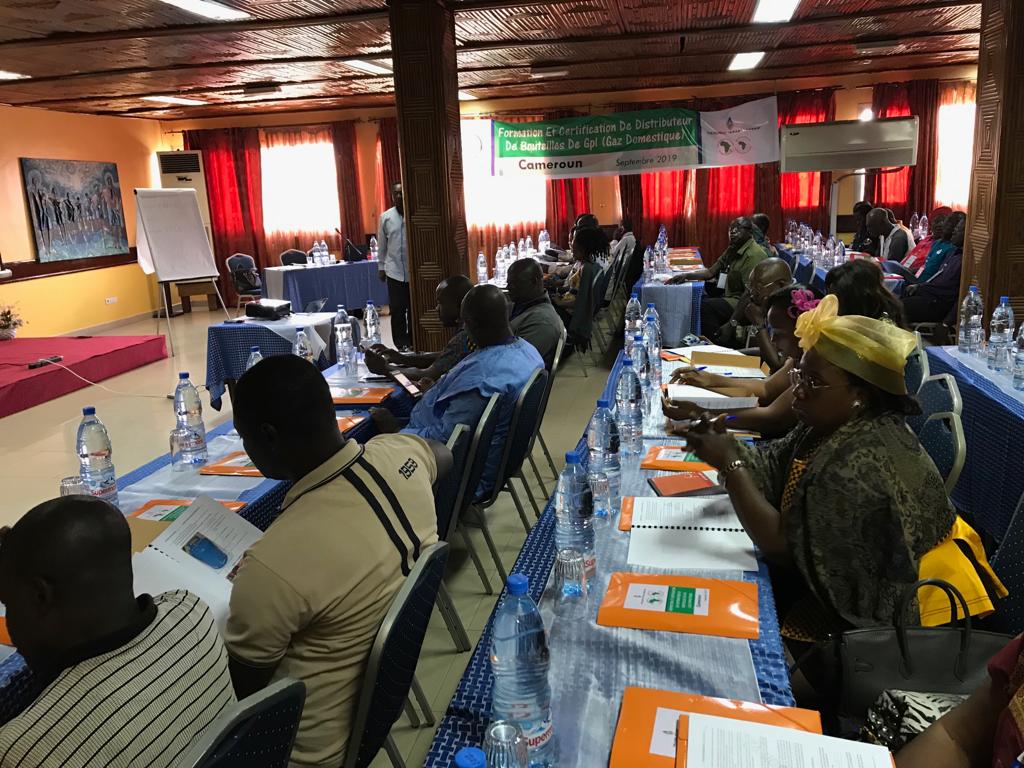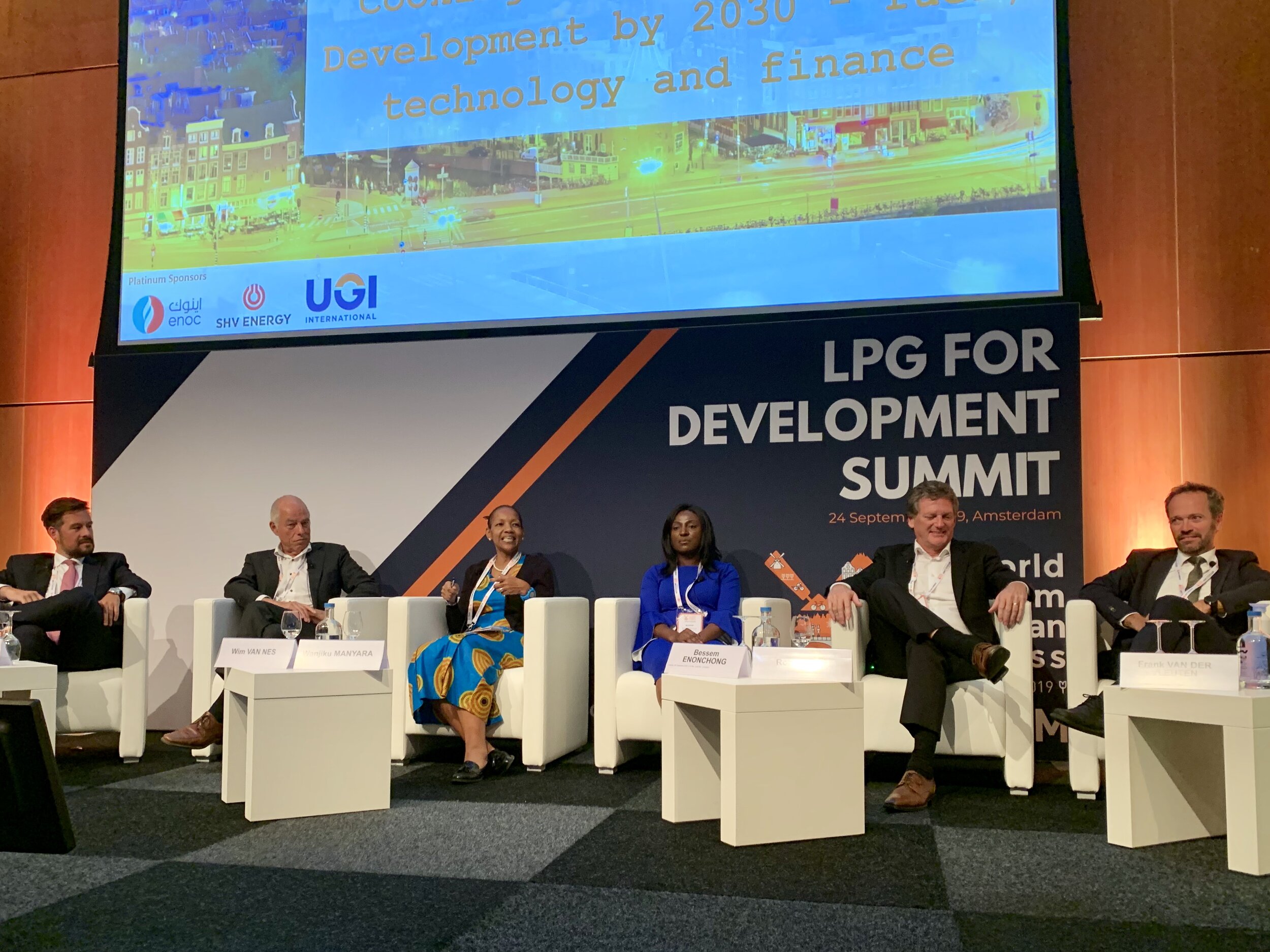GLPGP September 2019 Newsletter
Message from Alex Evans, Chair, Operating Committee
Dear Friends,
It has been a busy summer for GLPGP:
In Rwanda, we launched a national LPG master planning process with the Government to support the country in achieving its goal to scale up LPG access and use to 40% of the population by 2024. This will be carried out synergistically alongside a six-month EU-KfW-funded country assessment that will contribute market analysis and investment project identification to the National LPG Master Plan.
In Cameroon, our close collaboration with the Government continued with capacity building activities for the LPG sector and the launch of a new women’s entrepreneurship program with funding support from the African Development Bank. And the second phase of our microfinance program in Cameroon concluded with excellent results on loan repayment and LPG usage rates.
In Amsterdam, we held our third annual LPG for Development Summit in partnership with the World LPG Association. Over 100 people participated, evidencing the growing appreciation by international LPG stakeholders of the significant role LPG must play in addressing the clean cooking gap in the developing world.
Please read on, and don’t forget to follow us on Twitter @globallpg.
African Development Bank Technical Assistance for Cameroon LPG Development
GLPGP has commenced work under a Technical Assistance grant from the African Development Bank (AfDB) for three LPG development projects in Cameroon: a women’s entrepreneurship program, a nationwide safety audit of LPG filling plants, and a training and certification program for LPG distributors.
(i) Women’s entrepreneurship training: GLPGP together with Cameroonian implementing partners are providing start-up support – including entrepreneurship training and LPG distribution training, start-up capital, and working capital loans – to help women establish community-level LPG distribution businesses. The call for registrations, made through women’s associations, received overwhelming response. The initial cohort of women is slated to graduate from the program by the end of 2019.
Women’s entrepreneurship program briefing to cameroonian women’s associations.
(i) Safety audit for LPG filling plants: A safety audit of LPG filling plants in Cameroon was conducted in May 2019 to identify gaps versus existing safety requirements and recommend steps to address them. The report was shared with the Ministry of Water Resources and Energy and other stakeholders in September 2019. This project will help to strengthen Cameroon’s LPG regulatory environment and to ensure future compliance with necessary LPG safety standards.
(ii) Training and certification of LPG distributors: Drawing on its extensive global experience and knowledge base, GLPGP developed and adapted for local conditions a set of best practices for LPG distribution, to be adopted by distributors across different regions of Cameroon. The resultant Distributor Training Manual was used by GLPGP to train and certify about 400 Cameroonian LPG distributors during September 2019.
Training of LPG distributors in Yaounde, September 2019.
These activities are part of GLPGP’s ongoing partnership with the Government of Cameroon to implement its National LPG Master Plan.
Bottled Gas For Better Life Microfinance Program – Cameroon Phase II Completed
Phase II of Bottled Gas for Better Life in Cameroon concluded with a 98% loan repayment rate and sustained LPG usage by participants of an impressive 21kg per capita per year on average, above both the urban and rural national averages. A series of debriefing meetings were held with the ten participating Cameroonian microfinance institution (MFI) units. They unanimously agreed that the Bottled Gas for Better Life program had improved the lives of the women they served. They acknowledged that GLPGP’s assistance in organizing sensitization and education activities was crucial in getting their customers interested in switching to LPG. Many said they would recommend to their headquarters and boards of directors that the program should be continued and expanded.
Customer satisfaction surveys were conducted with all loan recipients to learn about (a) their experience with the program and with LPG, (b) ongoing LPG usage levels, and (c) self-reported impacts on their health and use of time. Detailed survey data from the interviews will be independently analyzed by the University of Liverpool and will be reported in the near future.
Scaling up LPG Use in Rwanda
GLPGP is moving forward in its partnership with the Government of Rwanda to execute on Rwanda’s national LPG expansion strategy, to counter deforestation and forest degradation caused by heavy reliance on biomass fuels for cooking. A mission to Kigali took place in September 2019 for planning meetings with the Ministry of Infrastructure and other stakeholders. Rwanda’s goal for this partnership is expansion of LPG use to 40% of the urban and rural population overall by 2024. To fund this work, the European Union through its Infrastructure Trust Fund, administered through German development bank KfW, has approved the expansion of the GLPGP-led multi-country Clean Cooking for Africa program to include Rwanda.
GLPGP team with Rwandan government officials and LPG industry representatives
Kimball Chen, GLPGP Chairman, Speaks at Ministerial Roundtable at United Nations Climate Action Summit
GLPGP Chairman Kimball Chen was an invited speaker at the Ministerial-level roundtable “Leaving No One Behind - taking action: Session 2: Energy Fueling People” at the United Nations Headquarters in New York on 22 September 2019, as part of the Climate Action Summit Weekend Events. The events were co-organized by the Executive Office of the UN Secretary General and different countries and institutional partners, as an opportunity to present and discuss solutions to lower the financial and social costs of transitioning to carbon neutrality.
In his remarks, Mr. Chen said that many developing countries have made large scale LPG sector growth a priority, and both the International Energy Agency and World Health Organization have identified LPG as an important, quickly scalable solution for the 3 billion who need clean cooking. Mr. Chen also emphasized that GLPGP looks forward to collaborating with the global development system and host countries to develop LPG for clean cooking on a large scale.
Report: Sustainable Development Goals: Contributions of LPG
GLPGP is the author of a new report, Sustainable Development Goals: Contributions of LPG, published by the World LPG Association in July 2019. The report provides an overview of the contributions of LPG, in its various applications, to achieving the United Nations’ Sustainable Development Goals by 2030. The report is available online at GLPGP’s website here.
Report: Scaling LPG For Cooking in Developing Markets: Insights from Tanzania
A new report authored by the Clean Cooking Alliance (CCA), ENEA Consulting, and GLPGP, published by the CCA, highlights key market, financing, and regulatory challenges related to the scale-up of LPG as a cooking fuel, particularly for low-income families. The report contains information acquired through a technical assistance engagement the CCA and ENEA Consulting delivered to KopaGas in Tanzania. It includes a discussion of how technology-enabled pay-as-you-go solutions adapted from the off-grid solar sector are emerging as an alternative business model, and one that can increase the affordability and availability of LPG for low-income families in Tanzania and elsewhere.
RECENT EVENTS
LPG for Development Summit (24 September 2019)
The third annual LPG for Development Summit, co-organized by GLPGP and the World LPG Association, was held in conjunction with the World LPG Forum in Amsterdam, the Netherlands on 24 September 2019. This year the Summit focused on the role of LPG in clean cooking for improving health outcomes. Keynote speakers included Ms. Carmen Hagenaars, Deputy Director, Inclusive Green Growth at the Ministry of Foreign Affairs of the Netherlands, and GLPGP Chairman Kimball Chen. Experts from the LPG, development, government and health sectors came together for lively debates on the role of LPG in development and how it fits into long-term green energy pathways. Panelists agreed that lowering access barriers, much more than affordability, is the key issue, and that governments must take a leadership role in creating the enabling environment for private investment in LPG sector development. This, together with context-specific, evidence-based communications about the benefits of cooking with LPG will drive demand as well as support the business case. A summary of the discussion outcomes will be available on GLPGP’s website shortly. (Please check back soon.)
31st Annual Conference of the International Society for Environmental Epidemiology (25-28 August 2019)
Dr. Elisa Puzzolo, Director of Research, Monitoring and Evaluation at GLPGP and co-Director of the CLEAN-Air(Africa) Global Health Research Group at the University of Liverpool, attended the 31st annual conference of the International Society for Environmental Epidemiology (ISEE) in Utrecht, the Netherlands. This conference brought together global experts to discuss and strengthen epidemiological research and capacity development in environmental health and to improve public health outcomes on a global scale.
Dr. Puzzolo presented in a session on “Harmonizing insights from intervention studies, contextual information and resource availability to develop policy advocacy for clean cooking and domestic fuel adoption in Africa”, alongside speakers from the University of Chicago, Kintampo Health Research Centre in Ghana, Project Gaia and Imperial College London. Her presentation focused on the research and health sector capacity building activities of the CLEAN-Air(Africa) Research Group, which is active in three of GLPGP’s focus countries (Ghana, Kenya and Cameroon).





